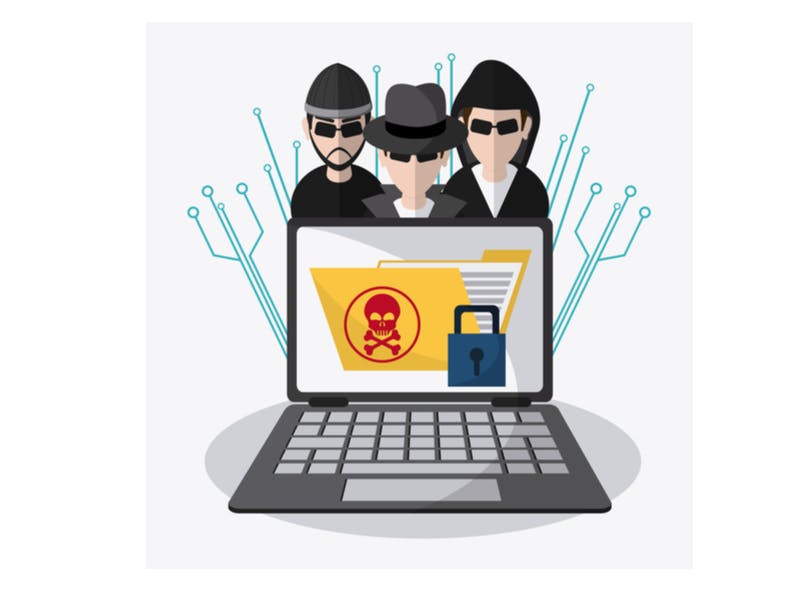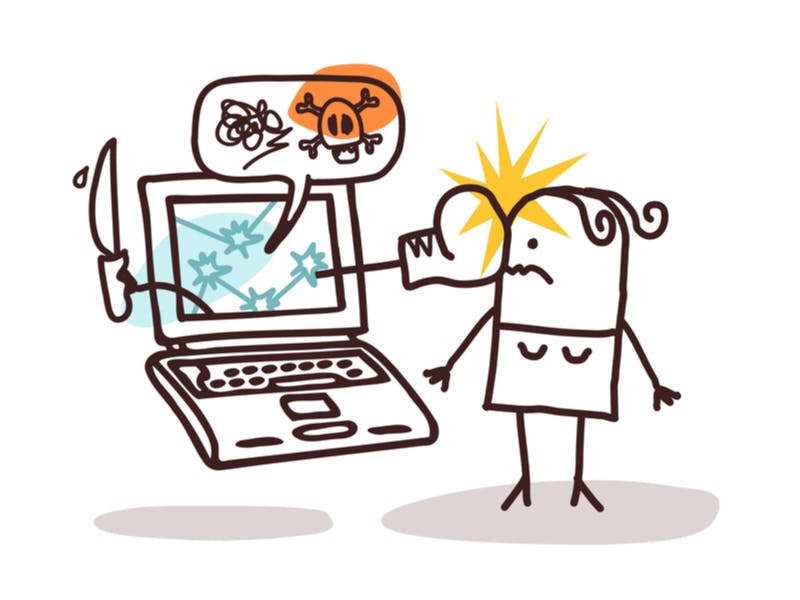Router-Network.com's Guide to Wi-Fi and Internet Safety
The world of the Internet has brought us new wonders and fun but also new challenges, especially when it comes to keeping ourselves safe.
In the information age, it's more and more important to protect our personal information. But even if your network is secure and your information is safe, you still have to worry about the potential for threats such as cyberbullying.
Wi-Fi Safety
Wi-fi is a bit of a different beast than wired communication. With a wire, the signal is protected: It travels from the port to your device, with no chance for people in between to see what's being sent. Wireless signals are sent over the open air. This means that these connections are far more vulnerable to being hacked by people between the router and the device.

You may even be connecting to an attacker's device directly, rather than a router, allowing them to channel the Internet through their device and take whatever information they find interesting. Even with your own home router, people who can get access to your connection may be able to view your personal files, take your passwords, or even do things that are illegal using your network, making you part of the crime.
Pro Tip
Fortunately, we have ways to keep ourselves safe that do a great job at protecting our information and safety. The easiest step is to secure your network. This means encrypting your network so the data being sent is scrambled, so anyone who could get access to it won't be able to understand it.
- Securing Your Wireless Network: Follow these simple steps at home or in the office.
- The Importance of Wireless Security: Why do you need to worry about protecting yourself anyway?
- Six Ways to Secure Your Router: Turning on security settings isn't the only step you need to take to become more secure.
- Wireless Connections and Bluetooth Security Tips: Bluetooth is also wireless and has its own security issues.
- Why You Really Need to Stop Using Public Wi-Fi: Harvard Business Review has a chilling tale of what might happen if you use public Wi-Fi.
- How to Secure Your Home Wi-Fi: Read this guide to learn how to keep your connection safe.
- How to Boost Your Router Security: Did you know that your router also gets updates? Learn about that and more with this guide.
- Securing Your Home Wi-Fi: Security starts at home, and this teaches you what to do.
- Secure Your Wireless Access: This guide has detailed directions to keep your wireless as secure as possible.
- Securing Your "Internet of Things" Devices: If you have any Internet-connected device, it needs to be secured, too.
Internet Safety
Even if your technology is secured as much as possible, your information can still be at risk online, just because you put it there. One of the best ways to not have personal information leaked online is to not put it online in the first place. A huge amount of personal information that's out on the Internet was put there by people filling out their social media profiles.
Pro Tip
It's also important to regularly search for yourself in search engines to make sure that no information is there that you don't want to be there.
<a href="https://privacyhq.com">PrivacyHQ - Digital Privacy and Safety Online</a>: A thorough knowledge base on all matters related to privacy online.
This includes your address, phone number, location, or anything else you'd rather keep private. Once you've made sure you're not leaking your own information, it's a good idea to use the private browsing mode on your computer or regularly clear your cookies when you're using the Internet. Companies use cookies to track where you've been and can often piece together this information to reveal who you are.

Another important thing to think about when keeping yourself safe online is cyberbullying. This is like the bullying kids might experience at school, except that it happens online. You can't always prevent this from happening, and it's not the victim's fault when it does. But you can fight it by reporting the messages to the websites they use, blocking them on websites and apps, and not responding to them.
- What Is Cyberbullying? Learn what cyberbullying is and what you can do to prevent and deal with cyberbullying.
- Cyberbullying: How to Keep Safe Online and Deal With It: From prevention to handling the issue, this guide covers it all.
- Tips to Help Stop Cyberbullying: Whether you're a kid or a parent, this site has a guide to help you.
- Top Tips if You're Being Bullied Online: This short list is great for younger kids who need help with cyberbullying.
- Ten Tips for Teens to Prevent Cyberbullying: Learn ways to protect yourself online in general as well as prevent cyberbullying.
- Cyberbullying: Top Nine Tips on How to Overcome It: Ditch the Label is a support community with great tips to help you overcome bullying.
- Protecting Kids Online: Are you a parent? This guide focuses on ways for you to keep your children secure online.
- 11 Simple Ways to Protect Your Privacy: Follow these tips to help keep yourself safe.
- EFF's Top 12 Ways to Protect Your Online Privacy: The Electronic Frontier Foundation is a leading voice for Internet privacy.
- How to Erase Your Personal Information From the Internet: Follow this guide to erase information about you online.
- How to Protect Your Personal InfoAnother important thing to think about when keeping yourself safe online is cyberbullying. This is like the bullying kids might experience at school, except that it happens online. You can't always prevent this from happening, and it's not the victim's fault when it does. But you can fight it by reporting the messages to the websites they use, blocking them on websites and apps, and not responding to them.
- rmation Online: Be smart about your online footprint by using these tips.
- Steps You Can Take to Protect Your Privacy Online: Mozilla is huge in the tech world and knows all about privacy.
- Online Privacy: Using the Internet Safely: Learn about the different threats online and how to avoid them.
- Ten Tips to Stay Safe on Social Media: This list has short tips that you can read easily.
- How to Stay Safe on Social Media and Online: Following these directions can keep your information private, even if you share it online.
- Staying Safe on Social Networking Sites: The Department of Homeland Security has great tips to keep you safe.
- Social Networking Safety: The National Crime Prevention Council includes a glossary for easy understanding.
- Stay Safe This Social Media Day: The Identity Theft Resource Center focuses on what information can lead to your identity getting stolen.
- Safety on Social Media: These three simple tips are enough to get you started with online safety.